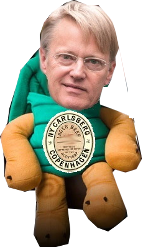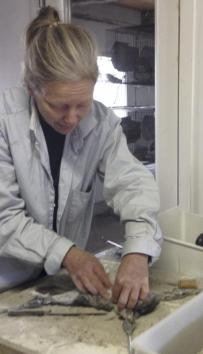 Summary: Kongstad and Battistelli seem to be perfectly alright with patents on food and beverages, clearly a very steep decline when it comes to patent quality at the EPO
Summary: Kongstad and Battistelli seem to be perfectly alright with patents on food and beverages, clearly a very steep decline when it comes to patent quality at the EPO
THE WEB page "No Patents on Beer!" was published yesterday. The title is self explanatory and the introduction names Carlsberg from Denmark, where the Chinchilla Man of the Administrative Council is from. Here is what EU Business says:
In 2016, the European Patent Office (EPO) granted three patents to the Danish brewery, Carlsberg. The patents cover barley plants derived from conventional breeding, their usage in brewing as well as the beer brewed thereof. In a joint letter, several civil society organisations are now calling on Carlsberg to drop these patents. They consider the patents to be an abuse of patent law and in conflict with the interests of consumers.
"There should be no patents on beer and barley. Breeding plants and brewing beer are not inventions, but based on centuries-old tradition," says Erling Frederiksen from Friends of the Earth in Denmark (NOAH). "Carlsberg should make it clear that they just want to produce good beer and are not acting against the interests of citizens and consumers. We do not want corporate control of our food or patent monopolies. No matter whether they are held by Monsanto, Bayer or Carlsberg."
Quickly afterwards the mainstream media in Germany joined in. It has
written about it as well, citing the above. Remember how protests against software patents and patents on life at the EPO culminated in talks, including one from Richard Stallman, in which he sort joked about patents on recipes and what the ramifications would be? Well, his analogy is no longer just an analogy:
The European Patent Office (EPO) in Munich and the Carlsberg company were sloshed Thursday in an open letter by campaigners opposed to the patenting of plants and animals.
No Patents on Seeds, an alliance including Greenpeace, the Catholic charity Misereor, and globally networked small-scale farmers, called on the Danish brewer to voluntarily relinquish three patents it received earlier this year from the EPO.
Documents published by the EPO also list Heineken of the Netherlands as a patent proprietor.
What next after that? Can cooks and chefs pursue patents on their cuisine? How low can one go? Can Mr. Kongstad and his wife pursue patents on methods for cutting a chinchilla? His wife certainly seems to know what she is doing (for the camera even!). Here she is "at work":

People who planned to apply for a job at the EPO actually told me that they had changed their mind after reading
Techrights. If this is what qualifies for an EP (European Patent) these days, then
no wonder the EPO struggles to recruit and lies about it instead.
Last year the EPO actually
paid respected publications not just for ads but also for puff pieces aimed at recruitment. Science is fundamentally against lies, but at the EPO lies have become the norm. Staff and journalists are habitually lied to by EPO management and now we have European media which is
PAID (even
large publications like The Financial Times) to repeat these lies. 'Informecials' for recruitment and outright defamation of staff that Battistelli does not like now dominate European media. Yesterday the EPO promoted this
new puff piece in Twitter. Is this one also of one of these paid puff pieces? It's hard to tell. The opening paragraph is purely promotional and it says: "Patenting is an integral part in every technology-driven industry since its protects ideas and enables inventors to create a business around them. But not every inventor or researcher necessarily is a man or woman of business, too. They need help by someone to deal with legal questions to patent and to protect their ideas. The European Patent Office (EPO) can help them."
Well, what the EPO stands for right now isn't inventors but booze companies and
foreign monopolies. It got a lot harder to derive joy and pride from an EPO job. The only time EPO staff actually enjoys is the time down the pub (after work).
⬆

 Summary: Kongstad and Battistelli seem to be perfectly alright with patents on food and beverages, clearly a very steep decline when it comes to patent quality at the EPO
Summary: Kongstad and Battistelli seem to be perfectly alright with patents on food and beverages, clearly a very steep decline when it comes to patent quality at the EPO
